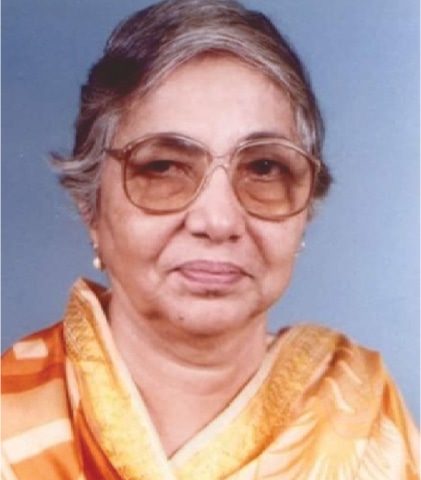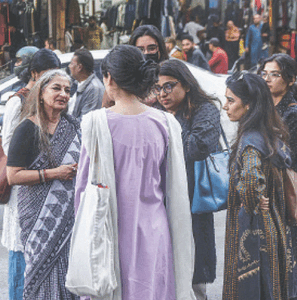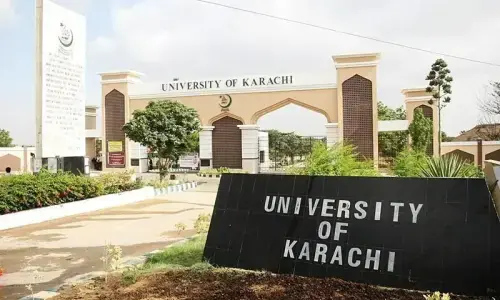
Noted Sindhi fiction writer and poet living in India, Kala Parkash, who had made memorable contribution to Sindhi literature after Independence and expired in Mumbai on Sunday, was also an untiring social worker. She was 84.
Kala, as known to the present generation was born to a moderate family of Karachi in January 1934. Schooled at Haridevi High School Karachi, she had to leave for India after Partition where she resumed her studies. Since she was 13 at the time of Partition she bore the bitter sense of becoming homeless, which she used to express in her writings.
After further education at K.J. Khalnani Higher School she got admission to Jai Hind College, Mumbai from where she had her Masters and joined Indian government as an auditor.
She had developed a taste for literature since her childhood which was further encouraged after her marriage in 1954 with Dr Moti Parkash, also a noted poet. She continued her job till 1977 and later after getting a diploma in Sindhi she became a lecturer. As a teacher she made worthy contribution by encouraging girls to take up literature.
She chose fiction as her mode of expression. Her husband Moti Parkash was a very sensuous poet who made laudable contribution in all genres of poetry besides attempting modern vocabulary.
Kala’s stories brought life to words. She wrote with such efficacy that it only added to colour. Her first short story titled Dohi bedohi in 1953 brought her laurels. She followed it up with many stories and her first novel Hik dil hazar armaan appeared in 1954. It was reproduced in Pakistan in 1973.
When the family moved to Dubai in 1977 after Dr Moti Parkash was appointed as principal of the India Public School, both decided to settle in the UAE but had to return after a quarter of a century to resettle in Bombay.
She felt the pain of separation quite deeply. In 1984 she visited Sindh. Here at a reception she expressed her anguish very deeply and summed up by saying that “what a misfortune that a journey of half an hour has been covered in 37 years”. Later, she expressed her feelings in the travelogue titled Heenarrey manjh hiran that appeared in 1987.
Her works that earned her a number of literary awards are: Hik dil hazaar arman (1957); Shishe ji dil (1963); Hayaati hotan re (1979); Waqt, vithyoon, vichhotiyoon (1988); Aarsi-a-aado (1992); Pakhin ji preet (1998); Samund ain kinaro (2004); Aukha pandh pyaar jaa (2010); Compilation: Murk ain mamta (1973);Varan me gul (1993); lntezaar (2008).
She also received a number of literary awards, which are: Akhil Bharat Sindhi Boli Ain Sahit Sabha’s award (1965); Maharshtra Sindhi Sahitya Academy Award (1992); Sahitya Akademi Award (1994); Ishwari Jivatram Buxani Award (2001) and Priya Darshni Academy Award (2010).
Published in Dawn, August 6th, 2018

































